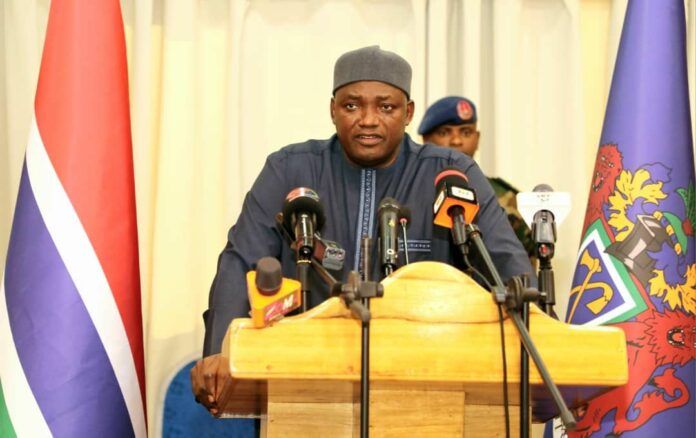By: Dawda Baldeh
The Gambian President, Adama Barrow, has clarified the issue of tax increments that he announced during his constitutional Meet-The-People’s Tour on November 2, 2023, raising concerns among citizens.
President Barrow clarified that these taxes are non-tax revenue and not daily payments. He revealed a deficit in the country’s budget, with the government expecting three billion dalasis in budget support from partners annually, while non-tax revenue collects about five billion each year.
Barrow mentioned that the tax increment followed discussions with the finance minister to address non-tax revenue. “For example, when registering your property at the Ministry of Justice, it might be once or twice in a lifetime. If you were paying D500, now it’s D1000 for national development. At the Physical Planning, if you were charged D300, now it’s D500. At the Ministry of Foreign Affairs, authenticating a document used to be free; now it’s D500,” he explained.
Barrow stressed that these are one-time taxes, not paid daily. He cited other taxes on marriage certificates at the judiciary and court summons charges, all of which will be increased. “You might go to court once in a lifetime or not at all. Our previous annual collection was five billion dalasis. With increased taxes, if we collect ten billion, we might not always need their support,” he added.
Barrow questioned the country’s reliance on foreign aid indefinitely. “Without our taxes, can we develop our country? We want development, and to achieve it, we must contribute. When we collect taxes, we build roads. Paying more ensures quality services for sustainability and freedom,” he emphasized.
Barrow noted that if the country can provide enough money for its budget, reliance on the IMF or the World Bank will drastically reduce. “We don’t need them conditioning our development if we can provide our budget. They suggested slowing down development, but we reject that. These are social projects, and we’re here to impact our people’s lives. We aim to generate revenue and develop our country without external conditions,” he concluded.




